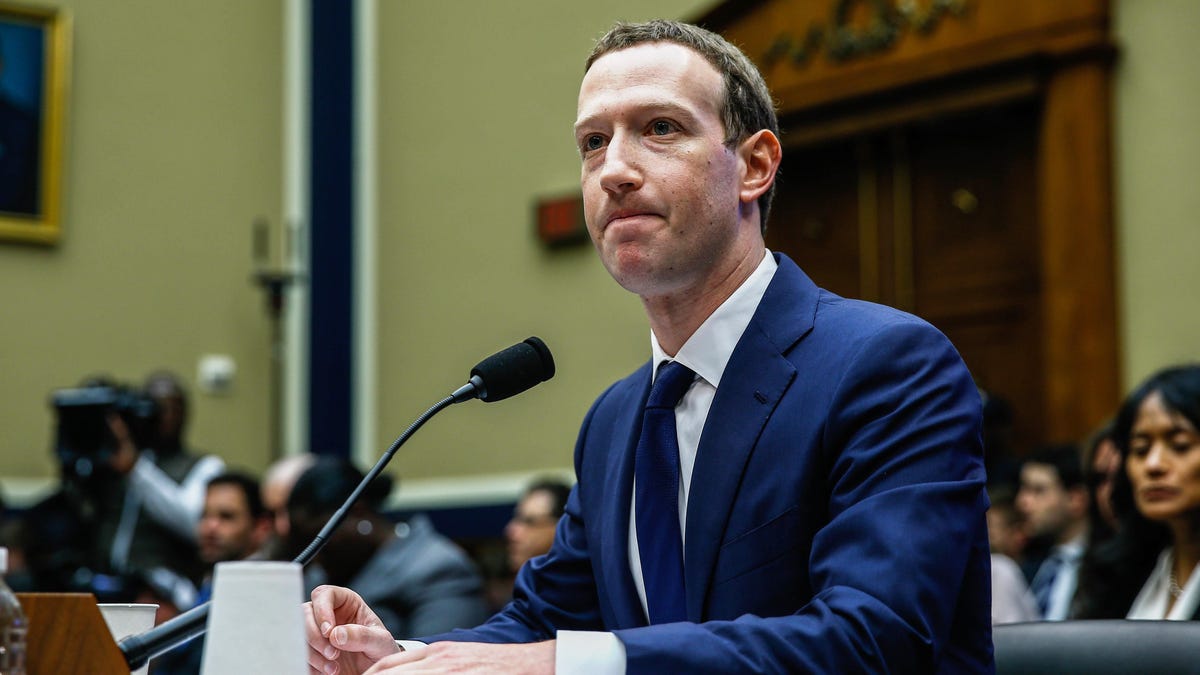Facebook acknowledges it shared user data with dozens of companies
The social network had agreements with 61 companies, ranging from AOL to UPS to dating app Hinge.

Facebook released answers Friday to questions posed by members of Congress in April that Facebook CEO Mark Zuckerberg couldn't answer at the time.
Facebook has admitted providing dozens of tech companies with special access to user data after publicly saying it restricted such access in 2015.
Facebook continued sharing information with 61 hardware and software makers after it said it discontinued the practice in May 2015, the social networking giant acknowledged in 747 pages of documents delivered to Congress late Friday. The documents were in response to hundreds of questions posed to Facebook CEO Mark Zuckerberg by members of Congress in April.
Facebook said it granted a special "one-time" six-month extension to companies that ranged from AOL to package-delivery service United Parcel Service to dating app Hinge so they could come into compliance with the social network's new privacy policy and create their own versions of Facebook for their devices. Data shared without users' knowledge included friends' names, genders and birth dates.
"We engaged companies to build integrations for a variety of devices, operating systems and other products where we and our partners wanted to offer people a way to receive Facebook or Facebook experiences," the company said in the documents. "These integrations were built by our partners, for our users, but approved by Facebook."
Facebook's documents also said it had discovered that five other companies "theoretically could have accessed limited friends' data" as a result of a beta test.
Facebook said in the documents it has ended 38 of the partnerships and plans to discontinue seven more by the end of July.
The disclosure was part of Facebook's second attempt to address questions posed to Zuckerberg in April by members of the House Energy and Commerce Committee. In June, the social network released its written responses to some of the committee's questions, many of which Zuckerberg responded to during that hearing by saying he'd have his team "get back to" lawmakers with answers.
Zuckerberg's testimony before both the Senate and House in April came as the social network deal with a scandal involving Cambridge Analytica, a digital consultancy that had ties to the Trump presidential campaign. Cambridge Analytica improperly accessed personal information on up to 87 million Facebook users, prompting a backlash that raised questions about whether Facebook can be trusted to protect the personal information of its 2 billion users.
The company has also been in the hot seat for not doing enough to prevent abuse from Russian trolls that posted misinformation and divisive content on the platform. The Russian activity was part of a program to meddle in the US presidential election and sow discord among voters.
Lawmakers in particular raised concerns over Facebook giving Huawei special access to user data, particularly with Huawei, a company perennially in the crosshairs of the US government for security reasons.
The controversy erupted in June when the New York Times reported that Facebook had agreements to provide access to large amounts of user data to at least 60 different device makers -- including companies like Apple , Microsoft , Samsung and BlackBerry .
In a test, a New York Times reporter logged into Facebook using a 2013 BlackBerry device, using an account with roughly 550 friends, monitoring the data requested and received. Through a BlackBerry app called The Hub, the device was able to acquire "identifying information" for up to 295,000 Facebook users.
Facebook didn't immediately respond to a request for comment but has previously said it's taking actions to make sure the Cambridge Analytica data exploit doesn't happen again. Zuckerberg said Facebook will investigate all apps that have access to large amounts of data, and restrict developers' data access even further.
Cambridge Analytica: Everything you need to know about Facebook's data mining scandal.
iHate: CNET looks at how intolerance is taking over the internet.

